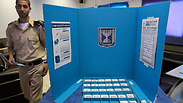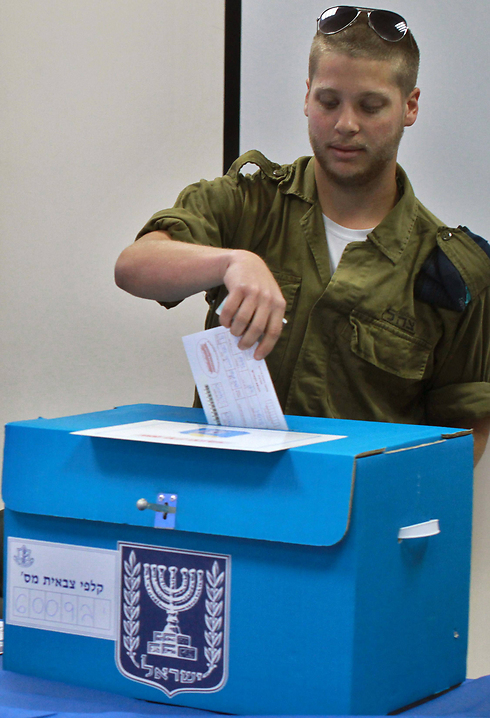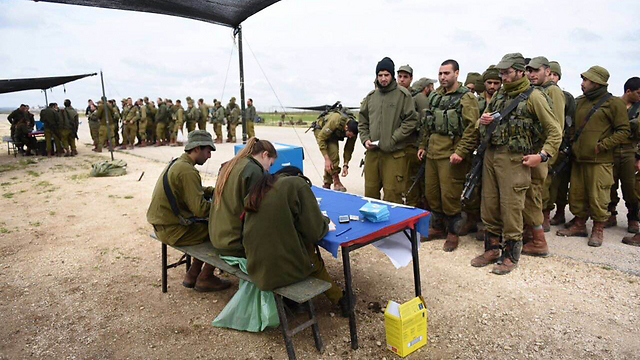
Soldiers vote at IDF voting station.
צילום: AFP
More than 200,000 'double envelope' votes could sway election results
Votes submitted by IDF soldiers, hospital patients and overseas diplomats will begin being counted Wednesday night, known as 'double envelope' votes, and have the ability to change the election results - as they have done historically.
One of the biggest fears of each political faction is that it will wake up two days after the elections to find out that the "double envelope" votes, which come from soldiers, hospital patients, prisoners, polling station workers and Israeli diplomats overseas have lost them a Knesset seat.
On Wednesday night, the counting of the "double-envelope" began, marking the final count before the 20th Knesset is officially announced.
There have been several politicians who have benefited from the "double envelope" vote in the past. For example, in the 2013 election, Bayit Yehudi's Shuli Mualem, Hatunah's Yoel Hasson and the Likud's Ayoor Khara all initially thought they would not be a part of the 19th Knesset after the initial count but had the scales tipped in their favor after the "double envelope" count gave each of their factions one more Knesset seat.
During the election for the 19th Knesset, the "double envelope" count also caused some dismay for MKs who lost their seat due to the additional count. The United Arab List lost one seat and Taleb el-Sana did not enter the Knesset. More than 217 thousand votes were counted in the "double envelope" vote in 2013, days after the elections took place.
In the election for the 18th Knesset in 2009 the 184 thousand "double envelope" votes did not bring about any changes to the initial results.
In 2006, in the vote for the 17th Knesset, 180 thousand "double envelope" votes were counted and led to a 3 seat change. Kadima garnered another seat which enabled Yoel Hasson to enter the Knesset, Meretz gained a seat and along with it came MK Avshalom Vilan and the Likud also gained a seat, with Israel Katz joining the list. Meanwhile, Yisrael Beytenu lost a seat and David Rotem was left behind. Shas lost Mazor Bahaina and the United Arab List lost Abbas Zakour.
In 2003, the "double envelope" vote strengthened the right-wing, giving the Likud and the National Religious Party one more seat, adding Ayoob Kara to the Likud list and Nissan Slomiansky to the National Religious Party's list. But one party's gain became another's loss when One Nation lost Adisu Massala, who could have become the first Ethiopian Israeli to serve in the Knesset and Hadash lost its 4th seat along with Dov Khenin.
In 1999, in the 16th Knesset elections, both the National Union and Meretz received one more Knesset seat after the "double envelope" vote count. Binyamin Elon joined the rest of the National Union's list and Hussniya Jabara joined the Meretz list, becoming the first Arab MK. On the other hand, One Israel lost Eli Ben-Menachem and Yisrael BaAliyah lost Natalia Yelinson.
In 1996, the "double envelope" vote led to a one seat change: Shas lost a seat and the Likud gained a seat.
Shiri Hadar and Aviel Magnezi contributed to this report.












